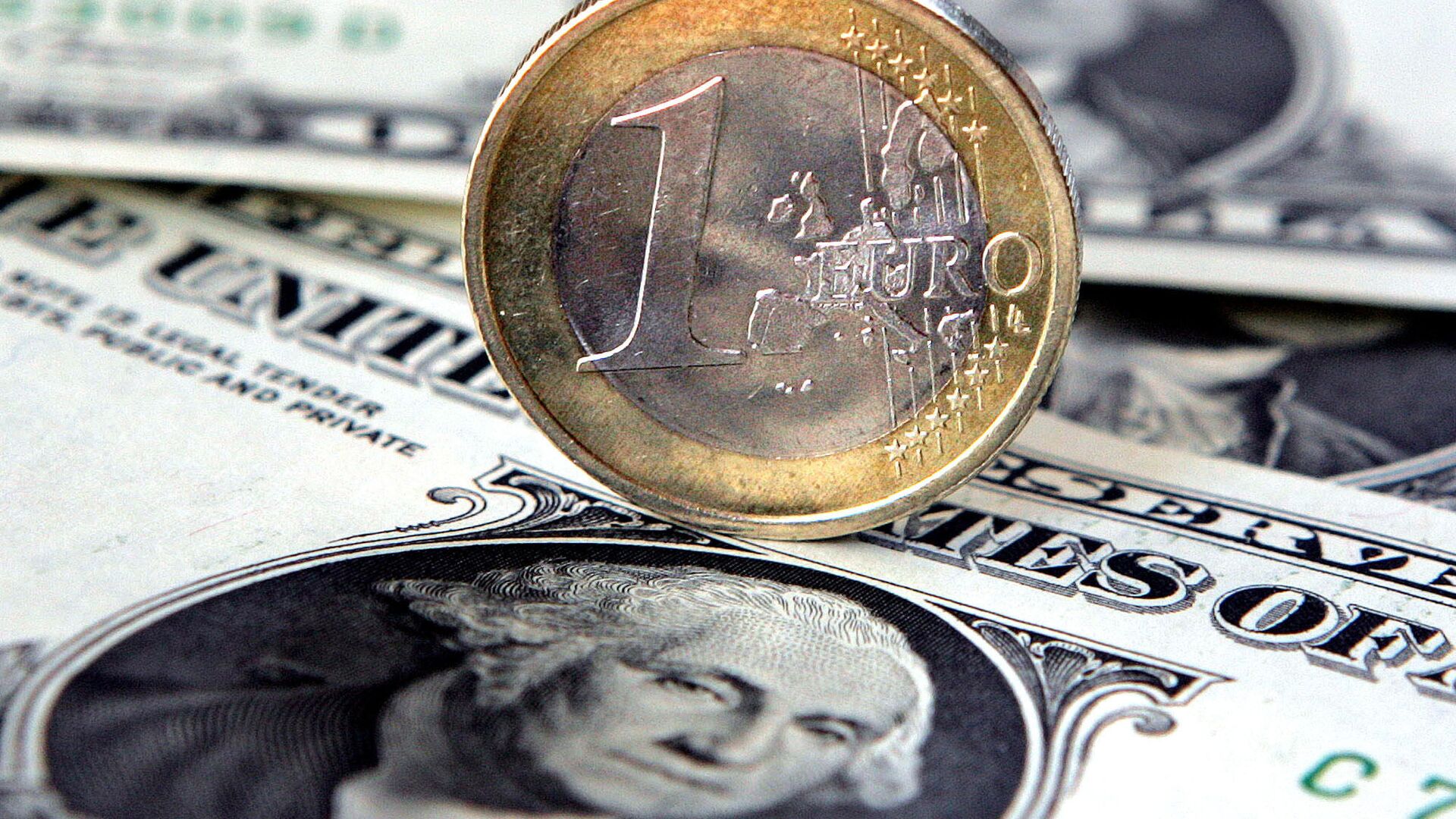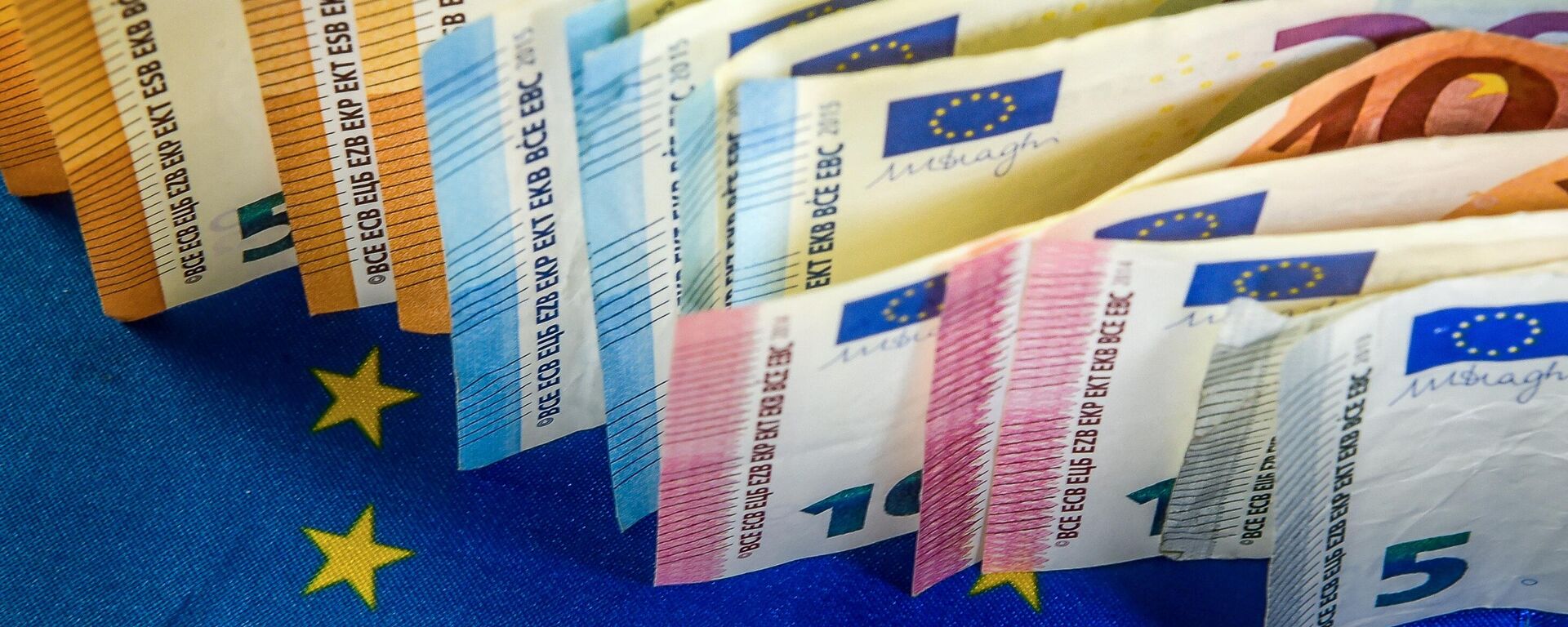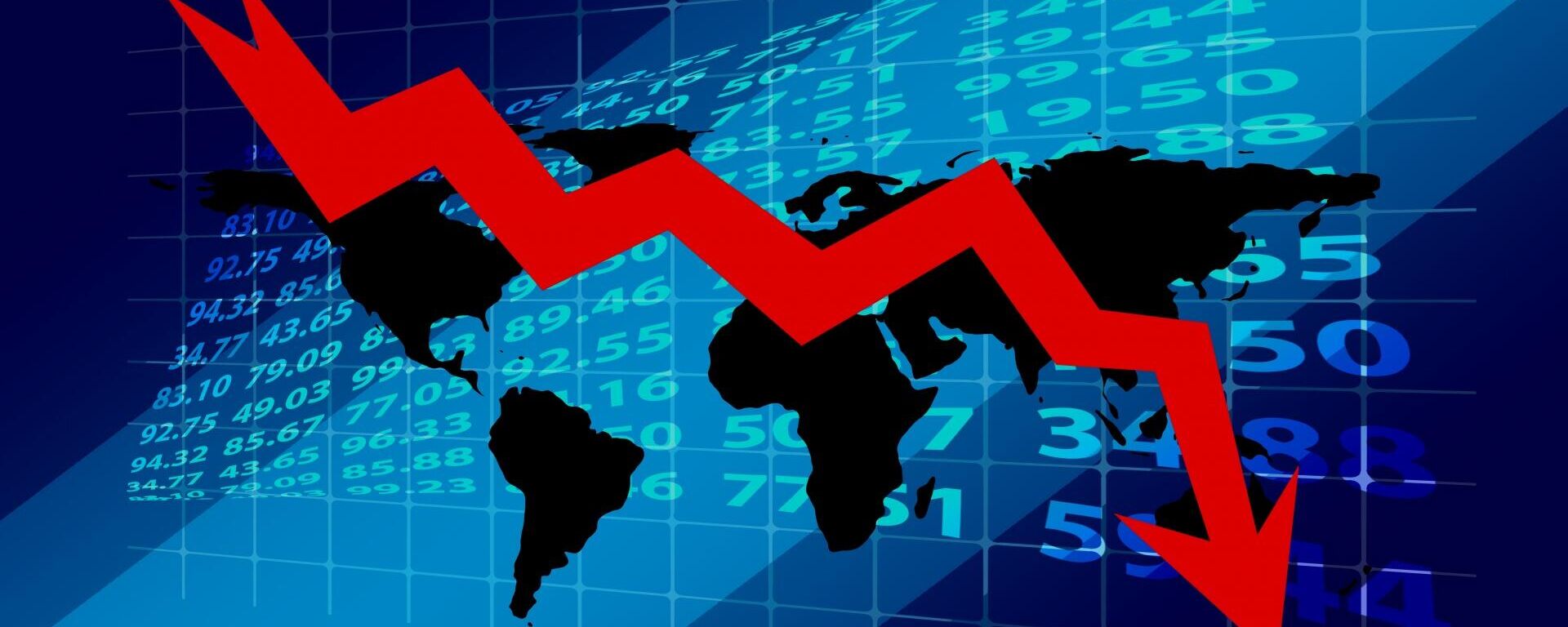New Normal? How US Dollar and Energy Crunch are Eating Away at Euro's Strength
18:39 GMT 14.07.2022 (Updated: 11:20 GMT 05.03.2023)

© AP Photo / MARTIN MEISSNER
Subscribe
The euro plummeted below the US dollar on July 13 for the first time in nearly 20 years amid growing concerns about a looming recession and energy crisis. For its part, the safe-haven greenback has capitalized on uncertainty regarding the Eurozone’s future.
"The depreciation of the euro against the US dollar goes along with the appreciation of the US dollar against the euro, as a result of two different factors," says Sergio Rossi, professor of macroeconomics and monetary economics at the University of Fribourg, Switzerland. "The euro area has been suffering, and will be suffering even more, from the geopolitical situation, whilst the US economy is rather benefiting from this situation, and moreover the US Federal Reserve has already begun tightening its own monetary policy."
Since its launch in 1999, the European single currency has long been worth more than the dollar. The euro fell as much as 0.4% to a low of $0.9998 on Wednesday – its lowest level since December 2002 – while overall it has lost over 10% so far this year. Skyrocketing energy prices, soaring inflation, and expected recession are named as reasons for the euro's slump. As the EU gets bogged down in economic uncertainty, the US dollar is appreciating against the European single currency as a safe-haven currency now.
"The Eurozone economies will have to realize that parity of the euro with the US dollar is the new norm," highlights Christopher Bovis, professor of international business law at the University of Hull. "The gradual weakening of the euro is attributed to the stagnation of major Eurozone countries and the limited gains in productivity post COVID-19."
The professor argues that the unfolding trend is by no means temporary "but it is likely to crystallize for the medium term in currency markets."
The euro's slump vis-a-vis the greenback will have a lasting impact on business activities in the Eurozone, according to the observers.
"Euro-area businesses will more suffer than benefit from the depreciation of the euro against the US dollar, since export-oriented firms are not going to increase their activities much in light of the macroeconomic problems affecting the global economy for a variety of reasons, notably, the pandemic situation, the geopolitical tensions, as well as social issues and climate-related problems," Rossi says.
Moreover, those Eurozone companies that need to acquire raw materials or other inputs abroad will have to support an increase in their production costs, which they cannot entirely transfer to their customers, according to the professor. However, this will induce a reduction of both employment and wage levels across the euro area, he says, adding that the middle class will particularly suffer. This situation, in its turn, will provoke a negative second-round effect on the purchasing power of consumers, whose living standard will also be affected, Rossi expects.
Energy Prices Influence the Euro's Strength
Rising energy costs have taken a serious toll on the euro's strength, with some economic observers projecting that if Russia's Nord Stream 1 that's closed for 10 days doesn't reopen, Europeans may see even weaker levels of the single currency.
"The energy security issue which has emerged as the main shortcoming of the EU is the primary pathogen case of the weakening of the EU currency," says Bovis. "Eventually, energy concerns will be rectified, but for the first time the energy sector has played such a catalytic role in destabilizing a currency."
What's more, the current energy crisis in the Eurozone is self-inflicted as a result of the series of sanctions that European countries have adopted against Russia, according to Rossi. He forecasts that the situation in energy markets will worsen by the end of 2022 and might remain the same in 2023. The disturbing trend is likely to further depreciate the exchange rate of the euro, not only in terms of the US dollar, but also with regard to other currencies, such as the Swiss franc, Rossi believes.
"The Euroland will thus enter into a recessionary trend, with all negative consequences this could have for both society and the economic system of the euro area as a whole," the professor says.
Could ECB Stabilize Euro, Rein in Inflation?
The euro's stabilization is not an easy task, given that it is a major global currency: "Only the FX market can correct any under- or over- valuation, when the current uncertainties are out of the way, inflation is down, and growth expectations are back," notes Sushanta Mallick, professor of international finance at Queen Mary University of London.
Nonetheless, even under the current circumstances there is a way out, argues Rossi.
"To stabilize the exchange rate of the euro against the US dollar, the European Union as well as the national governments in the euro area should much increase public spending, first to reduce the burden on middle-class households across this area resulting from the mushroom growth of energy prices, then to enter into a climate-friendly energy mix, where the large majority of energy is really ‘green’ and produced within its member countries," he suggests.
According to the academic, the European Central Bank's (ECB) rate hikes may apparently be aimed at avoiding a further depreciation of the exchange rate of the euro against not only the US dollar, but also the Swiss franc. Meanwhile, the ECB's declared goal is to rein in galloping inflation in the Eurozone. It is assumed that the euro area's annual inflation rate reached 8.6% in June 2022, up from 8.1% in May. Still, Bloomberg argues that the ECB's "much-heralded interest-rate hike will arrive too late," citing economists who have recently taken part in the media outlet's survey. Moreover, the central bank's rate hikes may drag the Eurozone into a recession, economists warn.
"The ECB’s mandate is to focus on lowering inflation, but they cannot do much with their interest rate instrument, as inflation is driven by adverse supply shocks contributing to higher imported inflation," elaborates Mallick. "Any increase in interest rate will be a policy error at this time, harming growth and pushing the Eurozone into recession."
According to Mallick, "even if interest rates go up, the ongoing uncertainty and low growth expectation will deter investors from bringing their capital into the Eurozone."
"The ECB should better adopt a ‘wait and see’ strategy, to understand how the situation will evolve, and perhaps reduce its policy rates of interest to support ‘green’ economic activities and the purchasing power of middle-class people eventually," Rossi concludes.


